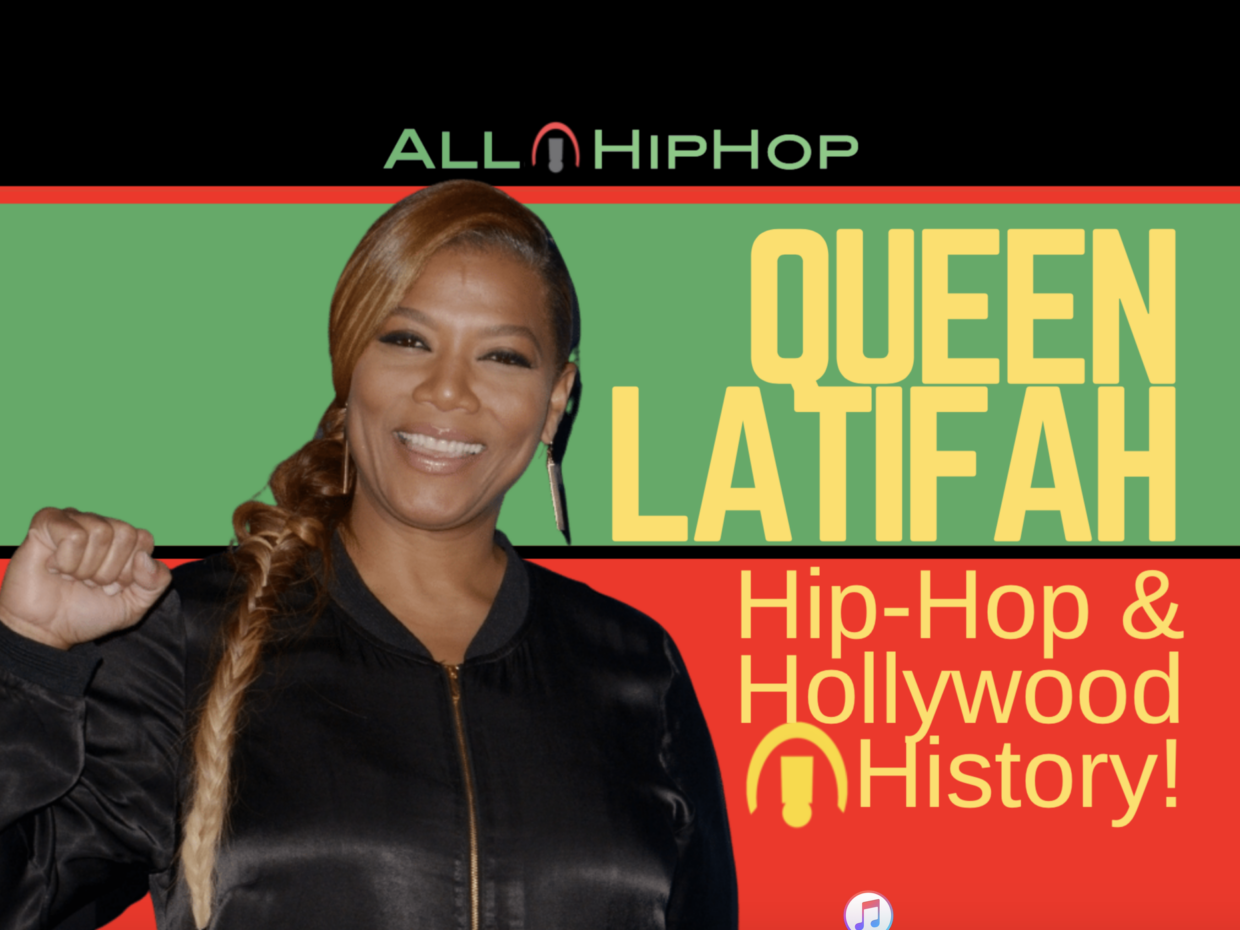A pioneer in every sense of the word, Queen Latifah was born Dana Elaine Owens in Newark, New Jersey, on March 18, 1970.
Daughter of a teacher and a police officer, Queen Latifah was raised as a Baptist and attended Catholic School, where she first started rapping and singing in the locker rooms and restrooms.
The name Latifah means “delicate” and “very kind” in Arabic, which was given to her by a Muslim cousin.
Throughout her childhood, she was always a force to be reckoned with. At a towering 5-ft 10, she was a power forward in her high school basketball team and found her love for performing.
After high school, the future star went to the Borough of Manhattan Community College, where she majored in Communications and started her hip-hop career. Her initial beginnings in hip-hop were back in school when she formed the group Ladies Fresh as a beatboxer.
Latifah caught the attention of famed producer DJ King Gemini who sent a recording of her song “Princess of the Posse” to Fab 5 Freddy, which then got the attention of Dante Ross at Tommy Boy Music. She was signed in 1989 at the age of 19.
Latifah struck major success because she could cross over genres due to singing and rapping on songs like “Ladies First” featuring Monie Love, “Come into My House” and “Just Another Day.”
Not one to stick to easy topics, the subject matter meant she was the first woman in hip-hop to transcend boundaries by talking about political issues and being a black woman in the modern world, as showcased on her massive hit “U.N.I.T.Y.”
Her songs covered subjects as diverse as domestic violence, relationship problems, and harassment on the streets.
It was not long until her career diversified into acting.
After a guest appearance on “The Fresh Prince of Bel-Air” in 1991 and supporting roles in movies like “Jungle Fever” and “Juice,” Latifah’s big break came when she starred as Khadijah James in the sitcom “Living Single.”
Other film roles included “The Bone Collector,” “Living Out Loud,” and the box-office smash “Set It Off.” Determined to dominate the daytime market, she became the host of her own talk show, “The Queen Latifah Show,” which had an original run between 1999 and 2001.
Her glittering career as an actress culminated with her role as Matron “Mama” Morton in “Chicago,” making her one of the few hip-hop artists to receive an Oscar nomination for acting, joining high-profile names like Jamie Foxx, Common, Will Smith, and Mary J. Blige.
In 2005, Latifah inked a deal with Revlon and started representing the brand’s “Queen Collection” makeup line for black women.
A profound force in hip-hop, R&B, and soul, her influence has been felt across the black community. She is often referred to as the “Queen of Rap” and the “Queen of Hip-Hop” and has also been considered the first “Feminist of Rap.”
Queen Latifah’s legacy has cemented her as one of the most pioneering female figures in Black America, but being the first hip-hop artist to get a star on the Hollywood Walk of Fame in 2006 proved that Latifah has always been paving the way for other artists who wanted to transcend barriers.
